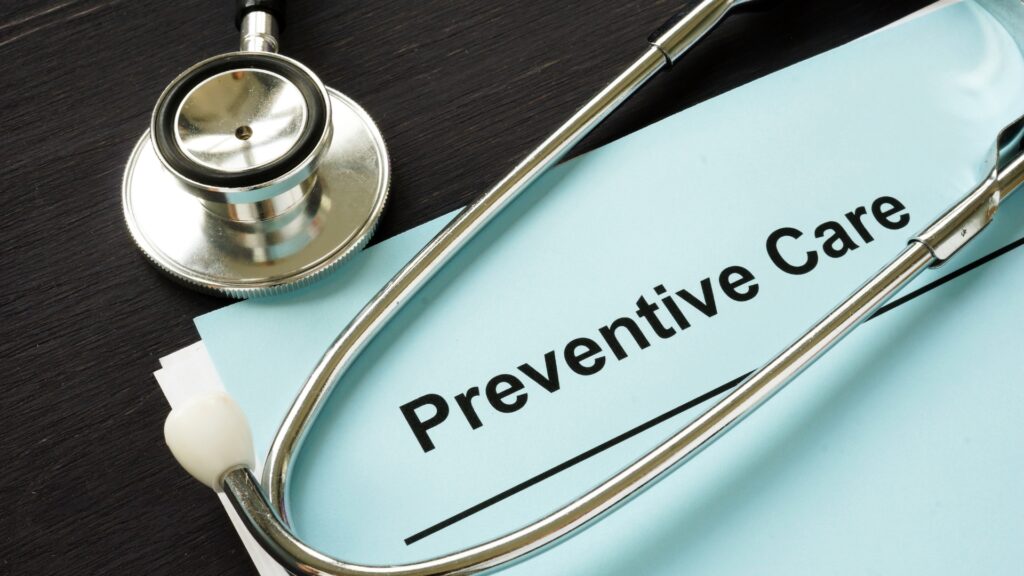Subtotal $0.00
In the hustle and bustle of modern life, prioritizing our health frequently gets sidelined. However, investing in preventive care can be a game-changer when it comes to maintaining overall well-being. Let’s delve into the significance of preventive care and how it can positively impact our lives.
Defining Preventive Care
Preventive care focuses on proactive measures to prevent diseases or illnesses before they occur. It involves regular health check-ups, screenings, immunizations, and lifestyle modifications to detect and mitigate potential health risks.
Historical Background
The concept of preventive care dates back to ancient civilizations, where emphasis was placed on maintaining balance and harmony in the body to ward off illnesses. Over time, advancements in medical science have provided a deeper understanding of preventive measures and their impact on health outcomes.
Current Landscape of Healthcare
In modern healthcare systems, preventive care plays a pivotal role in promoting population health and reducing the burden on the healthcare infrastructure. With an increasing focus on prevention rather than just treatment, individuals can take charge of their health journey.
Benefits of Preventive Care

Early Detection of Diseases: One of the primary advantages of preventive care is the early detection of potential health issues. Routine screenings and check-ups enable the detection of health issues in their early stages, facilitating prompt interventions and enhancing outcomes.
Cost Savings in the Long Run: Investing in preventive care can lead to substantial cost savings in the long run. By addressing health issues proactively, individuals can avoid expensive treatments or hospitalizations that may arise from untreated conditions.
Improved Quality of Life: Prioritizing preventive care can significantly enhance one’s quality of life. By maintaining good health through preventive measures, individuals can enjoy a higher level of physical, mental, and emotional well-being.
Types of Preventive Care
Primary Prevention: Primary prevention focuses on reducing the risk of developing diseases through lifestyle modifications, immunizations, and health education. It aims to prevent the occurrence of health issues before they happen.
Secondary Prevention: Secondary prevention involves early detection and treatment of diseases to prevent their progression and complications. Screenings and diagnostic tests play a crucial role in identifying health conditions in their early stages.
Tertiary Prevention:Tertiary prevention focuses on managing and minimizing the impact of established diseases to prevent further deterioration or relapses. It involves rehabilitation, management strategies, and ongoing support for individuals with chronic conditions.
Implementing Preventive Care
Regular Health Check-ups: Scheduling regular health check-ups with a healthcare provider is essential for monitoring overall health status and addressing any emerging concerns. These check-ups can help in early detection and management of health conditions.
Immunizations and Screenings: Immunizations and screenings are vital components of preventive care, as they protect individuals from infectious diseases and detect potential health issues early on. Staying up-to-date with recommended vaccinations and screenings is key to maintaining optimal health.
Lifestyle Changes and Health Education: Promoting healthy lifestyle habits and providing health education can empower individuals to make informed decisions about their well-being. Encouraging regular physical activity, balanced nutrition, stress management, and adequate sleep can contribute to a healthier lifestyle.
Overcoming Barriers to Preventive Care
Lack of Awareness: Many individuals may not be aware of the importance of preventive care or the available services. Enhancing health literacy and raising awareness about the benefits of preventive measures are crucial in promoting a proactive approach to health.
Access to Healthcare Services: Access to preventive care services can be hindered by various factors such as geographical barriers, financial constraints, or lack of healthcare providers. Improving access through telemedicine, community clinics, and health outreach programs can bridge this gap.
Socioeconomic Factors: Socioeconomic disparities can impact the ability of individuals to seek preventive care. Addressing social determinants of health, advocating for healthcare equity, and implementing policies that support preventive measures for all can contribute to a healthier society.

In conclusion, investing in preventive care is an invaluable asset in safeguarding our health and well-being. By prioritizing preventive measures, individuals can lead healthier and more fulfilling lives. Let’s take charge of our health journey and embrace the power of preventive care for a brighter and healthier future.
Summary of Key Points
Preventive care focuses on proactive measures to prevent diseases before they occur.
Benefits of preventive care include early disease detection, cost savings, and improved quality of life.
Types of preventive care encompass primary, secondary, and tertiary prevention approaches.
Implementing preventive care through regular check-ups, immunizations, screenings, and lifestyle changes is essential.
Overcoming barriers to preventive care involves raising awareness, improving access, and addressing socioeconomic factors.
Importance of Prioritizing Preventive Care
Prioritizing preventive care is not just a choice; it is a commitment to our health and well-being. By taking proactive steps towards prevention, we can build a healthier future for ourselves and our communities.
Call to Action for Individuals and Healthcare Systems
Let’s make preventive care a top priority in our healthcare journey. From scheduling regular check-ups to adopting healthy lifestyle habits, each of us has the power to invest in our health and reap the benefits of a preventive approach. Healthcare systems must also prioritize preventive measures, ensuring that all individuals have access to essential preventive care services.
- Why is preventive care important?
Ans: Preventive care helps in detecting health issues early, reducing healthcare costs, and improving overall well-being.
- How often should I have a health check-up?
Ans: The frequency of health check-ups may vary based on age, medical history, and risk factors. Consult your healthcare provider for personalized guidance and recommendations.
- Are preventive care services covered by insurance?
Ans: Many preventive care services are covered by health insurance plans as part of preventive care benefits. Please consult your insurance provider for precise coverage information.



